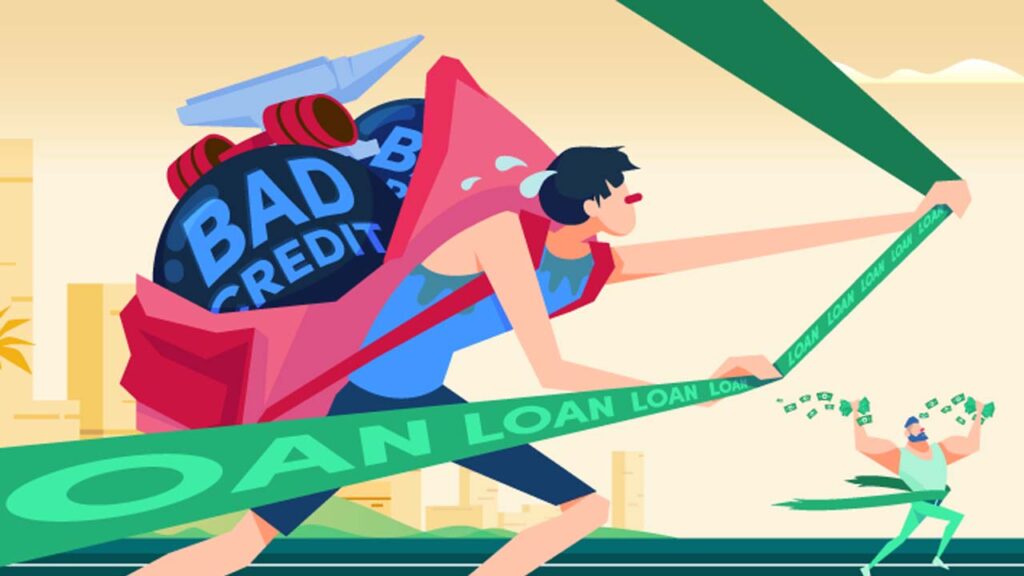SGDLoan.com – The idea of borrowing money often comes with concerns, which is why people search for clarity on whether a personal loan good or bad decision?.
Taking a personal loan in Singapore is a financial decision that many residents eventually consider, whether it’s to handle urgent medical expenses, renovate their homes, or manage existing debt more effectively.
Before jumping into a loan agreement, it’s crucial to understand all aspects of how these loans work, what the real costs are, and how your personal financial situation aligns with them.
A personal loan is neither inherently good nor bad—it all comes down to context, discipline, and clarity.
Let’s walk through every detail you need to make a confident and well-informed decision.
Understanding Personal Loans in Singapore

If you’re unfamiliar with how personal loans work in Singapore, you’re not alone.
Many people know they exist, but few truly understand the structure and implications behind these loans.
In Singapore, personal loans are offered by banks, licensed moneylenders, and digital financial platforms.
They are unsecured loans, which means you do not need to pledge any asset or collateral.
Because of that, the lender takes on more risk, which reflects in the loan’s interest rate.
The average interest rate for personal loans ranges between 3.5% and 11% per annum, and loan tenures typically fall between one and five years.
Depending on your income level and credit score, you may be able to borrow between 2 to 6 times your monthly salary.
What’s important is not just the loan amount, but the total repayment amount across the life of the loan—including all fees, charges, and interest.
A personal loan can be useful, but understanding what you’re signing up for is crucial.
Advantages of Taking a Personal Loan

Personal loans can offer a wide range of advantages, especially for individuals who are financially stable and looking for efficient short-to-mid term borrowing solutions.
Here are the key benefits that make a personal loan a potentially good option:
- Freedom to Use the Funds for Any Purpose
Whether you’re paying for a wedding, consolidating credit card bills, or funding a personal project, the lender does not require any justification on how the money will be used. - Fixed Interest Rates for Predictable Payments
Most personal loans in Singapore come with fixed interest rates.
This means your monthly repayment amount stays the same throughout the loan tenure, making it easier to budget. - Lower Interest Rates Than Credit Cards
Credit card interest rates in Singapore can go above 24% annually.
In contrast, personal loans—especially those for borrowers with good credit—tend to have significantly lower rates, sometimes below 5%. - Fast Processing and Disbursement
Some lenders, including major banks and digital lending platforms, offer approval within minutes and disbursement within 24 hours, making it convenient in emergencies. - Helpful for Debt Consolidation
If you’re juggling several high-interest debts, using a personal loan to consolidate them into a single, lower-interest loan can simplify your financial life and potentially save money. - Improves Credit Mix
Having a mix of credit accounts (such as credit cards and installment loans) may contribute positively to your credit score, provided you manage them well.
These advantages can be meaningful if used correctly and responsibly.
Disadvantages of Taking a Personal Loan

Despite the benefits, personal loans are not without risks.
Before applying, it’s essential to understand what makes a personal loan good or bad in your specific case.
Here are the common drawbacks and reasons why personal loans can become a financial burden:
- Higher Interest Rates Than Secured Loans
Since personal loans are unsecured, the interest rates are generally higher compared to loans backed by assets like homes or vehicles. - Late Payment Penalties and Other Charges
Most lenders impose a range of fees—processing fees, late payment fees, early repayment penalties, and administrative charges—that can significantly increase the cost of the loan. - Negative Impact on Credit Score
If you miss payments, it will be recorded in your credit report and could lower your credit rating.
This may limit your ability to get future loans or even affect employment opportunities in regulated industries. - Temptation to Over-Borrow
Easy approval and access to cash may tempt borrowers to take more than they actually need, which can lead to unnecessary financial pressure. - Loan Rejection Risk
Applicants with low credit scores or unstable income may find it hard to secure a loan—or may only qualify for loans with high interest.
These risks highlight the importance of careful planning before deciding to proceed with a loan application.
What to Consider Before Applying

Choosing whether a personal loan is good or bad depends on how you prepare for it.
Consider these important steps before applying for any loan:
- Clarify Your Financial Objective
Are you borrowing for something necessary or avoidable?
Borrowing for productive purposes—like education, consolidation of debt, or medical emergencies—is usually more justifiable. - Evaluate Your Current Financial Health
Use a monthly budget to calculate your income versus expenses.
Make sure you can comfortably afford the loan repayments without sacrificing essentials. - Compare Offers From Multiple Lenders
Use tools like SingSaver, MoneySmart, or bank loan comparison pages to check interest rates, tenure options, and total repayment costs.
Don’t just go for the first offer. - Understand the Total Cost of the Loan
Read the fine print to understand the full costs including fees, penalties, and the annual percentage rate (APR), which represents the true cost of the loan. - Check the Credibility of the Lender
Only borrow from MAS-licensed lenders.
Avoid unlicensed moneylenders, which may operate illegally and exploit borrowers.
Taking these steps can protect you from unnecessary financial stress and help ensure you borrow wisely.
Alternatives to Personal Loans

If you’re unsure whether a personal loan is the best choice, explore these alternatives that may be more cost-effective depending on your situation:
| Alternative | Best For | Remarks |
|---|---|---|
| Balance Transfer Credit Cards | Short-term debt repayments | Offers low or 0% interest for 3–12 months; good for credit card debt. |
| Overdraft Facilities | Short-term cash flow gaps | Automatically linked to your bank account; interest applies daily. |
| Secured Loans | Large borrowing needs at lower interest | Collateral required, but generally lower interest and better approval odds. |
| Borrowing from Family | Small personal expenses | May be interest-free, but be cautious about straining relationships. |
These alternatives may offer better flexibility or lower costs for some borrowers, especially those with manageable debt or minor expenses.
When a Personal Loan Makes Sense

There are many real-life situations where a personal loan could be beneficial.
Understanding these scenarios helps frame the conversation around whether a personal loan is good or bad for your needs.
- Emergency Medical Expenses
Medical issues can arise unexpectedly.
If your insurance doesn’t cover certain procedures or treatments, a personal loan can help you act quickly without delay. - Home Renovations
Upgrading your home can improve your quality of life and increase property value.
A personal loan offers quick funding with fixed repayments, making it a useful tool for homeowners. - Debt Consolidation
Managing multiple credit card payments with high interest can be overwhelming.
A personal loan can help you combine these into one monthly payment at a lower rate. - Educational or Professional Development
Investing in learning or upskilling may boost your career prospects and income in the long run.
These scenarios show how personal loans can be part of strategic financial planning when used responsibly.
Is a Personal Loan Good or Bad?

The truth is, a personal loan is neither universally good nor bad—it entirely depends on how it’s used, and whether it fits within your financial framework.
If taken for a clear, justified purpose and repaid responsibly, it can help you meet your goals without excessive long-term cost.
But if used impulsively, without proper budgeting or an understanding of the terms, it can spiral into a debt trap that’s hard to escape.
Always be honest with yourself about why you’re borrowing.
Consider all your financial obligations, track your monthly cash flow, and never commit to a loan you’re unsure you can repay.
If in doubt, consult reliable sources like Seedly or MoneySense, which offer practical and non-commercial financial guidance tailored for Singaporeans.
A well-informed borrower is far more likely to use a personal loan as a financial tool rather than a burden.









